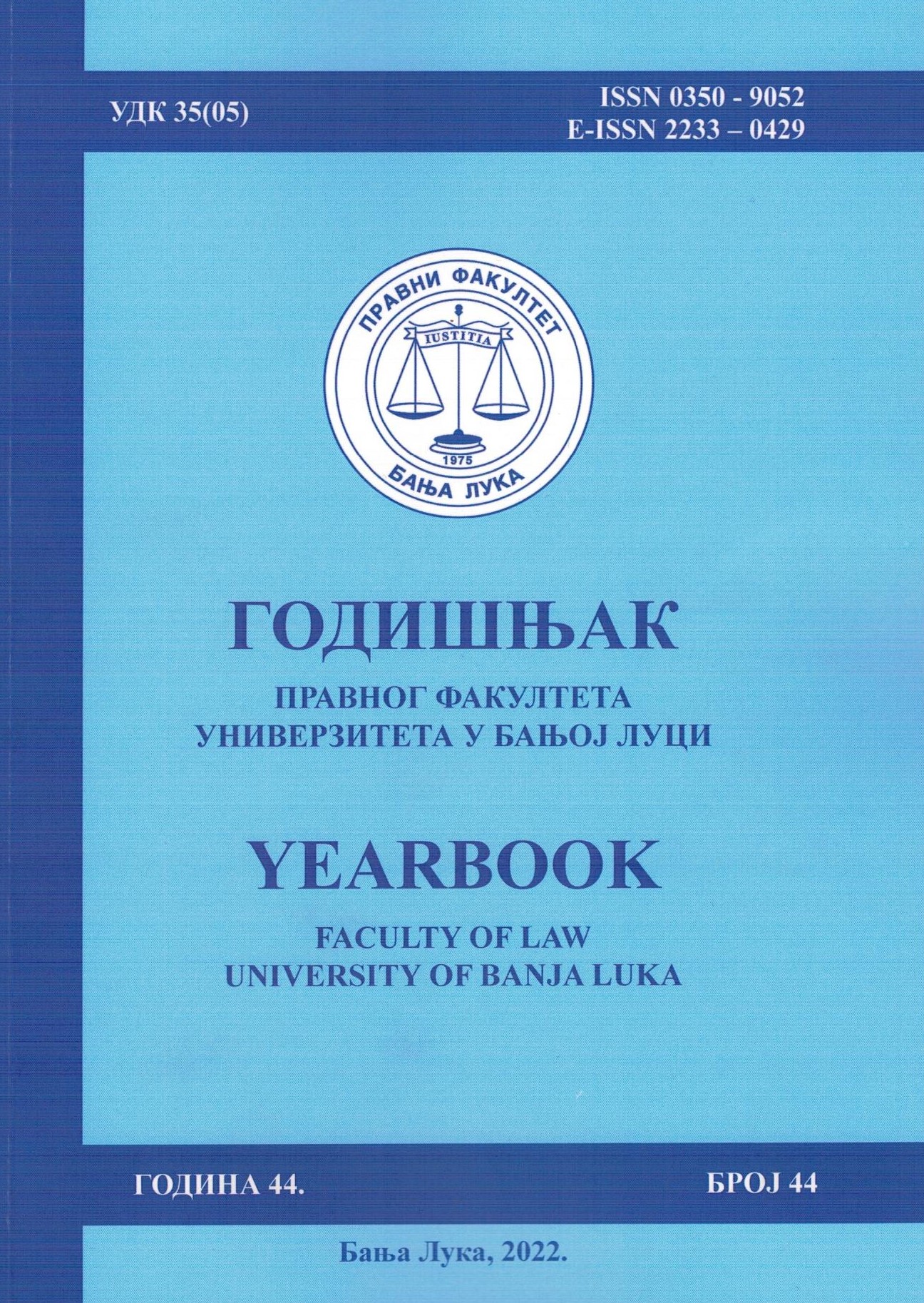LEGISLATIVE ACTION OF THE CONSTITUTIONAL COURT - THE CONSTITUTIONAL COURT AS A NEGATIVE LEGISLATOR
Abstract
The basic function of the constitutional court is, by definition, normative control, that is, control of the constitutionality of normative acts. By performing its basic function, i.e. performing normative control, first of all control of the constitutionality of laws as general legal acts, i.e. deciding on their compliance with the constitution, the constitutional court protects constitutionality (and legality) as the highest principles on which the rule of law and democratic social-political order rest. However, by declaring the law unconstitutional and preventing its existence in the legal order, the constitutional court also performs legislative action and thus becomes an agent of the legislative power. The legislative action of the constitutional court is peculiar and does not represent legislation in its traditionalist understanding as a function of state power. However, by canceling the unconstitutional law, the constitutional court becomes an agent of the creation of the legal system and becomes a negative legislator, as opposed to the parliament as a positive legislator. In accordance with the above, in this paper we will refer to the position of the constitutional court as a negative legislator as the most important aspect of its legislative activity.

This work is licensed under a Creative Commons Attribution-NonCommercial-NoDerivatives 4.0 International License.



